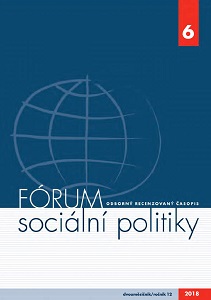Motivační funkce minimální mzdy: případová studie České republiky
Motivational function of the minimum wage: case study of the Czech Republic
Author(s): Jaroslav SchulzSubject(s): National Economy, Labor relations, Public Finances, Fiscal Politics / Budgeting, Labour and Social Security Law
Published by: Výzkumný ústav práce a sociálních věcí
Keywords: Minimum Wage; motivation function; social benefits; incentives to work; participation tax rate; TAXBEN alternative; Czech Republic;
Summary/Abstract: Article deals with the motivation function of minimum wage under current legislation setting in the Czech Republic in relation to income taxation as well as social benefits. Emphasis is put on housing benefits which belong to significant component of current social system. This corresponds to importance of housing cost for households. The main aim is to consider whether current minimum wage provides sufficient incentives for standardized household to work in an employment relationship. Study is focused on low-income households earning just the minimum wage. As a measure serves disposable household income calculated in relation to their occupational status. Calculations unambiguously point to fact that generally minimum wage in current setting does not provide motivation incentive for households to work. Relative largest incentives have households with children due to generous child EITC.
Journal: Fórum sociální politiky
- Issue Year: 2018
- Issue No: 6
- Page Range: 2-10
- Page Count: 9
- Language: Czech

